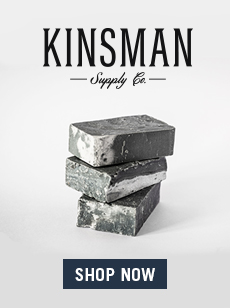Russia is massing troops on its border with Ukraine. The multi-sided, ongoing Syrian civil war rages on, in its tenth year. The Taliban have executed or forcibly disappeared more than 100 police officers and intelligence officials since its takeover last August. These are examples of violence before, during, and after military conflict.
Violence has phases. We work against violence before it happens, while it is happening, and after it has happened to stop the spread of it entirely.
Stopping Violence Before It Starts
In Venezuela, distributing food to starving families crushed by the financial crisis, planting farmland to create locally sustainable solutions to hunger, and supporting a mobile medical clinic addressing the health concerns of hundreds of families who can’t afford a visit to the doctor’s office halt the triggers of violence.
What’s next? Helping Venezuelans start businesses so they can feed their families themselves, and keep their communities intact, free from violence, instead of having to migrate.
In Lebanon, rebuilding homes destroyed in the port blast and delivering much needed food to families has lessened people’s desperation.
For next year? Giving some of the most vulnerable kids a daily hot meal, allowing them to attend school instead of having to beg for food or work. Running a soccer camp for kids in warring communities will encourage social cohesion and mitigate current tensions, hopefully preventing future flare-ups of violence.
Mitigating Violence as it Happens
In Mexico, distributing food to shelters, supplying milk and baby products for fragile infants, improving access to potable water, and restoring personhood with the installation of a playground gives hope to our migrant friends. Teaching tech skills, job skills, and English in the safety of a shelter makes our migrant friends more employable.
In the new year? Supporting a safe house near the Guatemalan border with food, water, hygiene products, and baby supplies for families fleeing violence.
In Colombia, supporting agricultural projects creates jobs to stimulate the local economy.
The next step? Getting to know our local partners through participation in food distributions in settlements for displaced Colombians and Venezuelans. Leaning in and listening to create projects our Colombian and Venezuelan friends want and need to survive violence.

In northern Syria, maintaining food distributions and medical clinics helps thousands of our Syrian friends survive and thrive during violence. Adding ob-gyn services, a dentist, surgeon, pediatrician, pharmacy, lab, and an ambulance delivers comprehensive care.
Moving forward? Listening and learning to create projects which build stability and sustainability.
Maintaining Peace After Violence
When war is over, the work is just beginning to restore sustainable lives. Jobs are critical to maintain peace in the wake of violence. In Iraq, expanding our makers’ product lines and connecting their businesses to the global marketplace gives these makers agency and confidence as well as profitable livelihoods. Providing capital for 500 small business owners (40% of them are women), coaching them, and connecting them in a community of entrepreneurs revitalizes the neighborhoods where these businesses operate.
Helping Yazidi families finally return home after a genocide, harvesting over 1 ton of produce and sharing it with refugees from Syria, and funding a high school for Syrian refugees in northern Iraq keeps these communities from backsliding into violence.
What comes next? Opening more businesses, coaching more owners, harvesting more food, and rebuilding more homes to help communities heal and stay free from violence.
In Afghanistan, bringing fresh bread and food boxes to Afghan families on the brink of famine provides immediate relief.
Looking ahead? Getting food to more families on the verge of starving. Bringing blankets and winter solutions for families at risk of freezing when temperatures drop.
Violence begins in our heads and our hearts before it reaches our hands. That’s why peacemaking is built into every food basket delivered, every hygiene kit and infant care kit distributed, every medical clinic started, every home rebuilt, every tech and jobs skills training class taught, every handmade artisanal product sold, and every small business opened.
We will continue to stop the spread of violence until violence stops.


